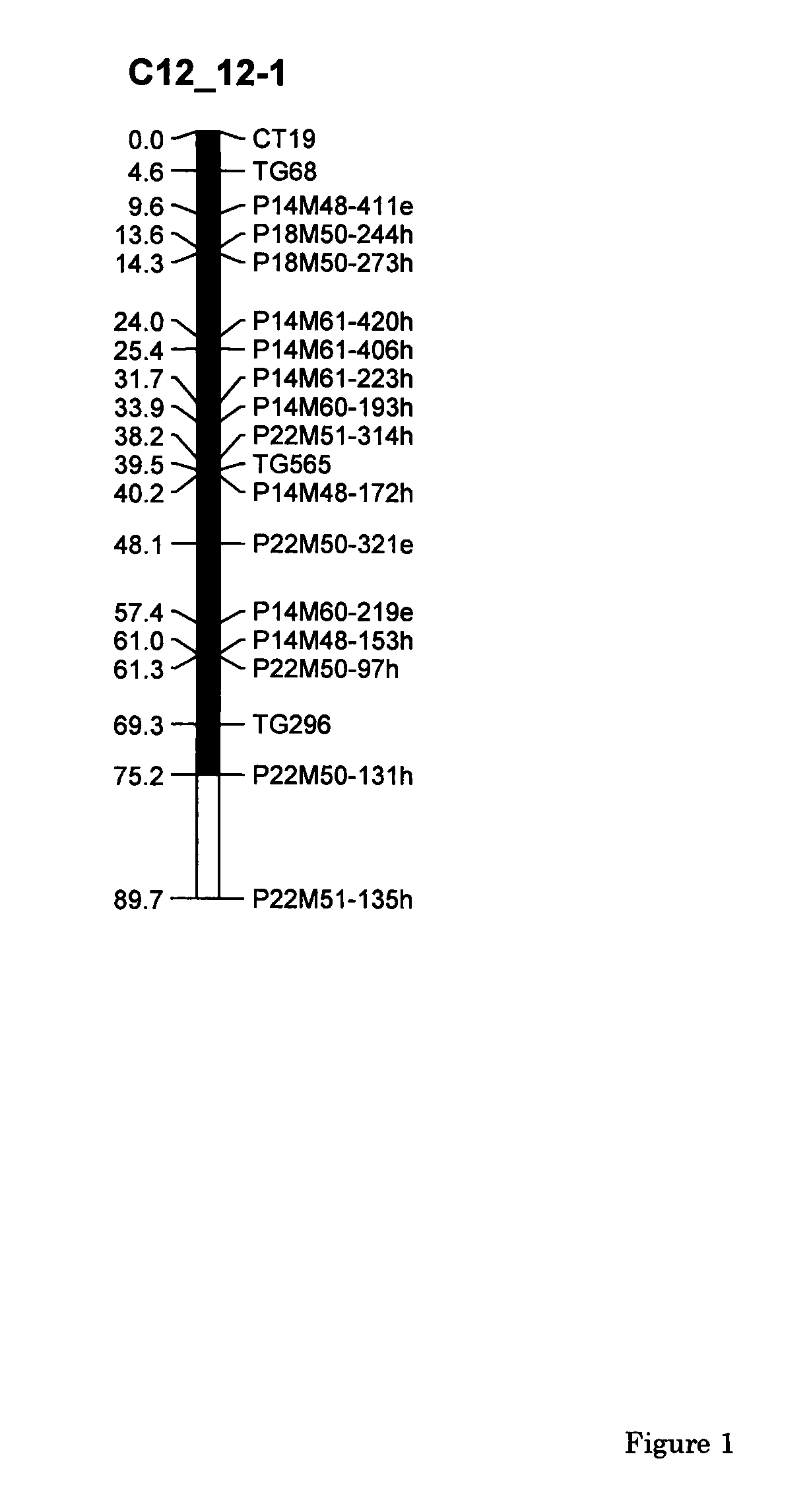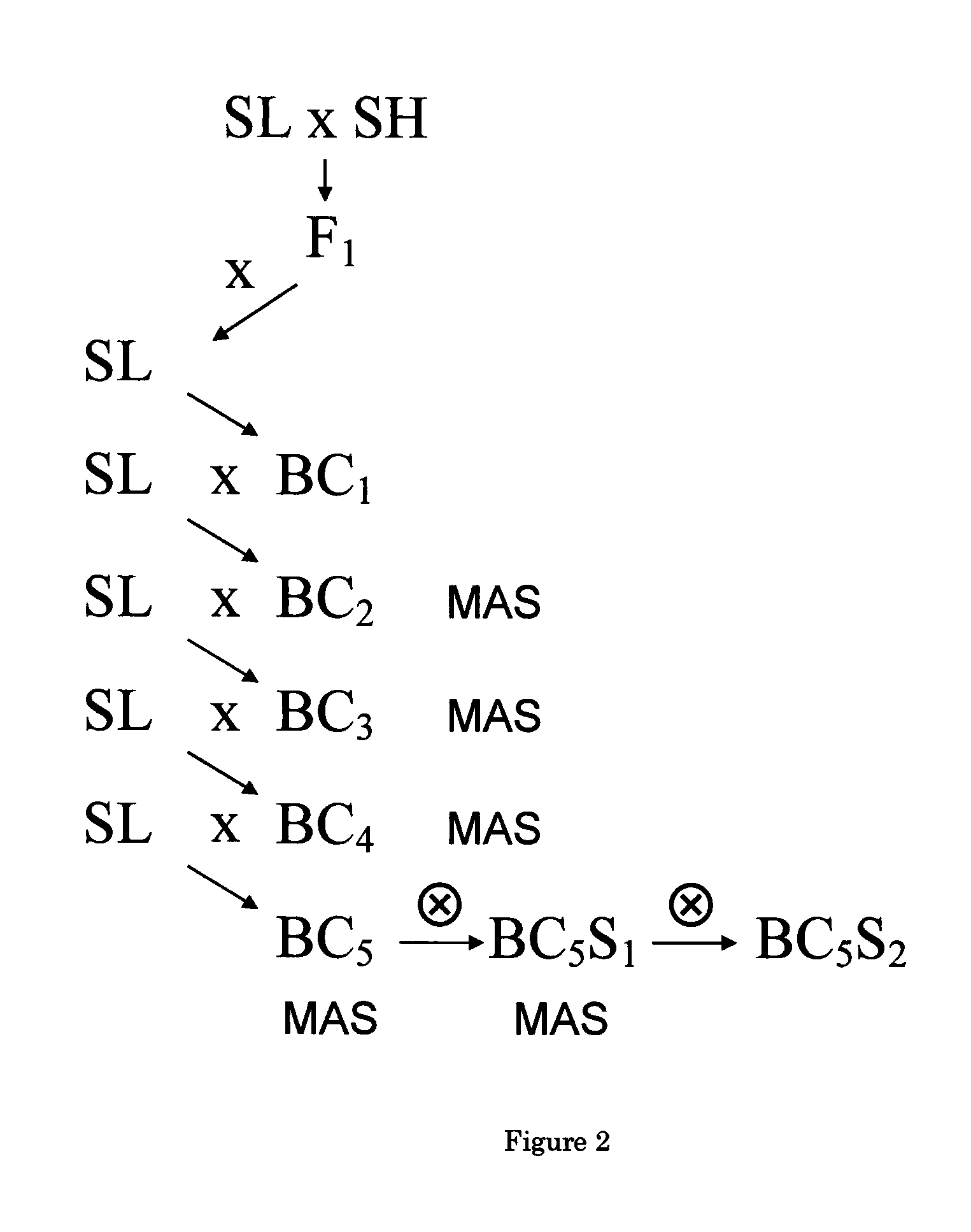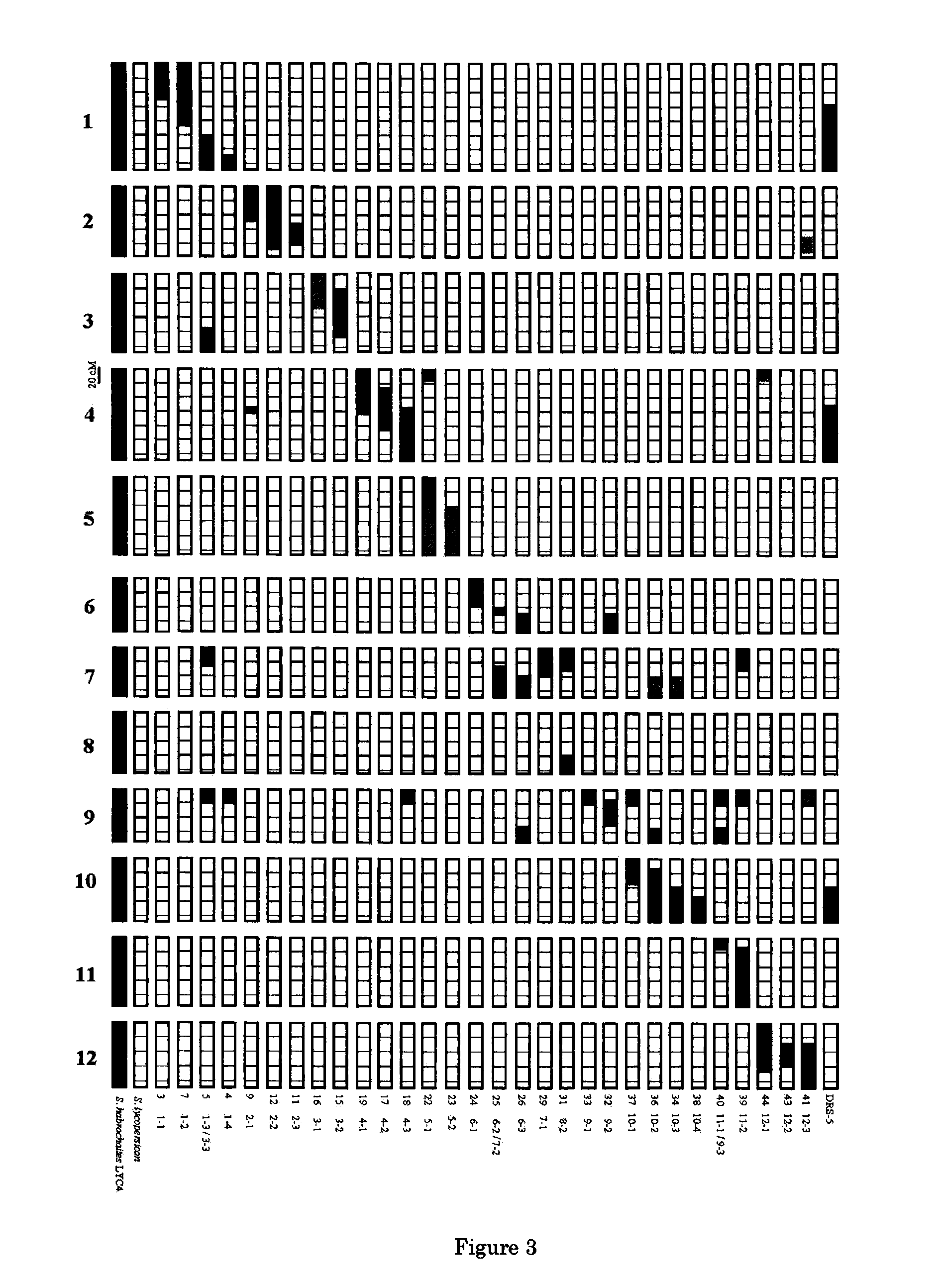Parthenocarpic genetic elements derived from S. habrochaites
a technology of parthenocarpic elements and genetic elements, applied in the field of seedless tomatoes, can solve the problems of inability to produce seeds, fruit and vegetables that are currently on the market, and less attractive fruits for many consumers
- Summary
- Abstract
- Description
- Claims
- Application Information
AI Technical Summary
Benefits of technology
Problems solved by technology
Method used
Image
Examples
example 1
[0120]In order to make for a more effective breeding process, involving the selection of candidate parent plants having the proper genetic constitution, it is necessary to have at one's disposal one or more genetic markers that indicate the presence of that genetic constitution in at least one of the candidate parent plants. This process, which includes crossing of the selected plants and is termed marker assisted selection (MAS), efficiently transfers favourable parental alleles from a donor to a recipient population and ensures that breeding is no longer dependent on coincidence and is economically much more effective in terms of development costs.
Material & Methods
Plant Material and Development of the ILs
[0121]Seeds of Solanum habrochaites LYC 4 / 78 (hereafter referred as LYC 4 / 78; seed batch of 1978) were obtained from the gene bank located at the Institute for Plant Genetics and Crop Plant Research, Gatersleben, Germany.
[0122]Seeds of Solanum lycopersicum cv. Moneymaker (hereaft...
PUM
| Property | Measurement | Unit |
|---|---|---|
| weight | aaaaa | aaaaa |
| weight | aaaaa | aaaaa |
| weight | aaaaa | aaaaa |
Abstract
Description
Claims
Application Information
 Login to View More
Login to View More - R&D
- Intellectual Property
- Life Sciences
- Materials
- Tech Scout
- Unparalleled Data Quality
- Higher Quality Content
- 60% Fewer Hallucinations
Browse by: Latest US Patents, China's latest patents, Technical Efficacy Thesaurus, Application Domain, Technology Topic, Popular Technical Reports.
© 2025 PatSnap. All rights reserved.Legal|Privacy policy|Modern Slavery Act Transparency Statement|Sitemap|About US| Contact US: help@patsnap.com



